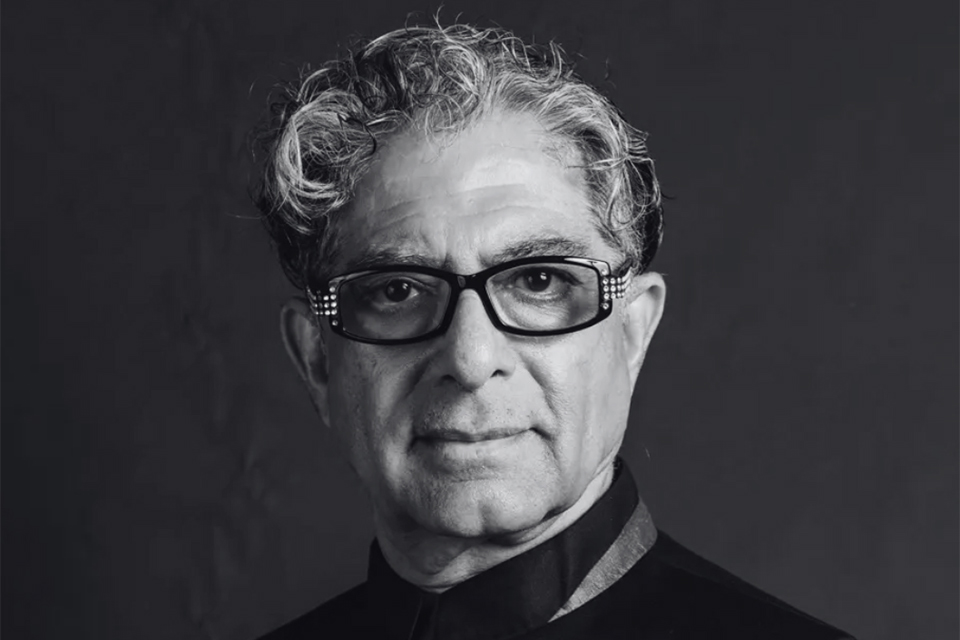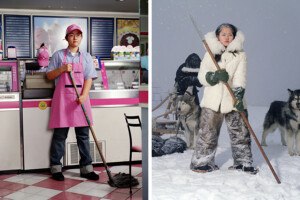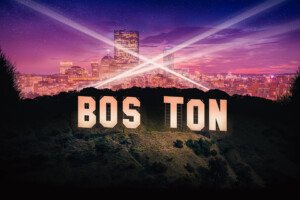Deepak Chopra Thinks AI Can Help Save Us
Boston is "my favorite city in the world," says the new-age icon, whose annual Sages & Scientists Symposium takes place this weekend in Cambridge.

Courtesy
Amid September’s season of learning underway, the latest edition of Deepak Chopra’s annual Sages & Scientists Symposium lands in Cambridge this weekend, taking place on September 14-15 at the Sanders Theatre. Hosted by the new age icon’s namesake foundation, which supports research on humanitarianism and well-being, the annual weekend conference assembles industry leaders from around the world—medical experts, scientists, entrepreneurs, artists, and musicians—to address global challenges that face humanity, well-being, and the cosmos. The goal is a lofty, but necessary one: For these leaders to collaborate and seek out innovative pathways to discovering solutions. Among 100 confirmed speakers, this year’s guests include serial entrepreneur Gary Vaynerchuk, fashion designer Kenneth Cole, MIT Media Lab director Dava Newman, TV host (and former Senate candidate) Dr. Mehmet Oz and many more.
Dr. Chopra has written more than 90 books, several of which are New York Times bestsellers, and TIME magazine once described him as “one of their top 100 most influential people.” While the 77-year-old is currently a clinical professor of Family Medicine and Public Health at the University of California, San Diego (where he now resides), Boston holds a special place in his heart. After emigrating to the U.S. with his wife in the early 1970s from India, Chopra earned his medical license in Massachusetts in 1973, became board certified in internal medicine, and went on to teach at the medical schools of Boston University, Harvard University, and Tufts University. “It’s my favorite city in the world,” Dr. Chopra tells us, when we spoke with him before this weekend’s event.
Boston: One of the significant challenges facing the intersection of science and human potential is misinformation. Because the world is at such a critical juncture politically, environmentally, and in terms of mental health and physical well-being, what your thoughts about moving forward productively given that challenge?
Deepak Chopra: I’ve been discussing that with people like Sam Altman, the CEO of OpenAI, who’s also going to be offering a dialogue with me at the conference. We are looking at how we can use AI to actually prevent the misinformation that’s happening in the world—and again, there’s technology for that. But in any new endeavor—ever since the development of technology—there’s been the misuse and right now that’s reaching a peak level. Because with AI and misinformation, you can interfere with elections; you can cyber hack; and you can create mechanized death without human intervention. So this is an issue that we will be discussing, and I can’t say we have a solution at the moment.
It’s a big topic. Considering the advancements in AI, as well as rapid advancements in science with technology and also drug development, people do have fears. Do you think that’s hindering the organic evolution of infinite human potential?
I don’t think so. People always fear change. In the last 150 years, we’ve seen everything from television to the internet to automobiles to air travel to intergalactic travel and possibly space travel. We’ve seen the development of social media. If you were born in the late 1800s or the early 1900s, the world you see today would have been unimaginable because it took all these multiple technologies to get here, and this is now taking another quantum leap. I would say it’s a huge breakthrough that we have the technology to create a more peaceful, just, sustainable, healthier, and joyful world. We just need the right partnerships and the collective will and awareness. Most people aren’t even aware that less than five percent of disease is, say, determined by fully penetrant gene mutations. Now, if you became aware of that, you would certainly then want to know more about epigenetics, neuroplasticity, and how lifestyles can change health outcomes; but most people aren’t aware of that. So the first thing is start with awareness and recognize that once the technology is there, it cannot go back. Therefore we have to decide, are we going to be the slaves of our own creation, or are we going to be the masters of it?
You’re hosting Sages & Scientists Symposium at Harvard. Is Boston in particular a city that’s advancing the intersection of science and human potential?
Yes. I spent 23 years in Boston. I got all my education and training in Boston at Boston University, at Tufts, and at Harvard. The conference is at Harvard’s Sanders Theatre, but we have participants from MIT and other universities from other locations in the country—from Duke, Stanford, and other places. Boston just happens to be the hub, because first of all, the Sanders Theatre hosts up to a thousand people, and second, it’s my favorite city in the world.
Having spent so much time in Boston, how have you seen the city evolve?
It was all always the hub of intellectual thought leaders, but also the Berklee College of Music is here, which is going to be participating. Boston is not just a center of academic excellence, but also for art, humanities, theater, entertainment, and much more.
It’s interesting time for humanity at large. It seems that people are more receptive to alternative ways of thinking to better ourselves. How do you anticipate that Sages & Scientists is going to help guide people on this path?
There’s an emerging social science on something called Emergence. It means a new story is born and an old story dies—it’s a death and a resurrection. Emergence happens when there is: shared leadership and shared vision; maximum diversity of thought leaders and gender; an emotional and spiritual bond among thought leaders; and a strengthening of everyone’s core competencies or strengths. If you [have] that, then every problem is solvable. We have the technology right now to reverse climate change, and we have the technology now—with all of the digital AI systems—to create abundance in the world. We have the technology to bring about social and economic justice; to create a new era of healthspan and well-being; and even to create a pandemic of joy.
In this conference, there are three components. One is called the Future of Well-Being. The second is called the Future of Humanity. The third is the Future of the Cosmos. We have thought leaders in every area—mental well-being, physical well-being, and emotional and spiritual well-being—but we also have thought leaders on climate change and sustainability, social and economic justice, and on peace building. We think this is a unique conference of its kind. We’re expecting a thousand people and about 100 speakers on various panels. It’s a new format that looks at the big issues of our time.
What do you hope attendees and the city at large take away from the conference?
I think what they should take away is inspiration and the confidence that we can change the world.
What’s inspiring you right now, aside from the conference?
What inspires me always is the unlimited potential for human creativity and for greatness.
Sages & Scientists takes place September 14-15, Sanders Theatre, Harvard University, 45 Quincy St., Cambridge and Hyatt Regency Charles River, 575 Memorial Dr., Cambridge. Tickets are available here.


